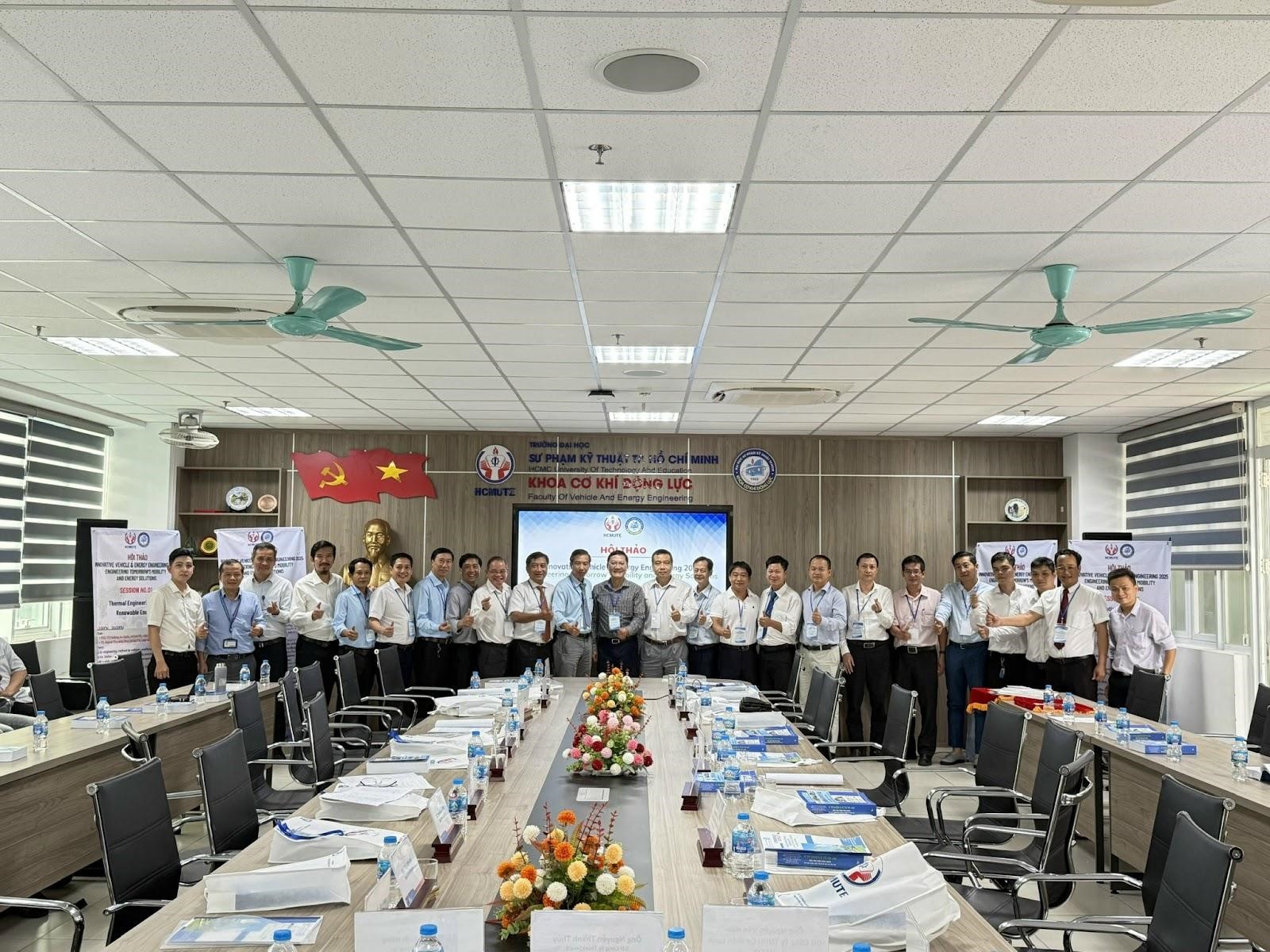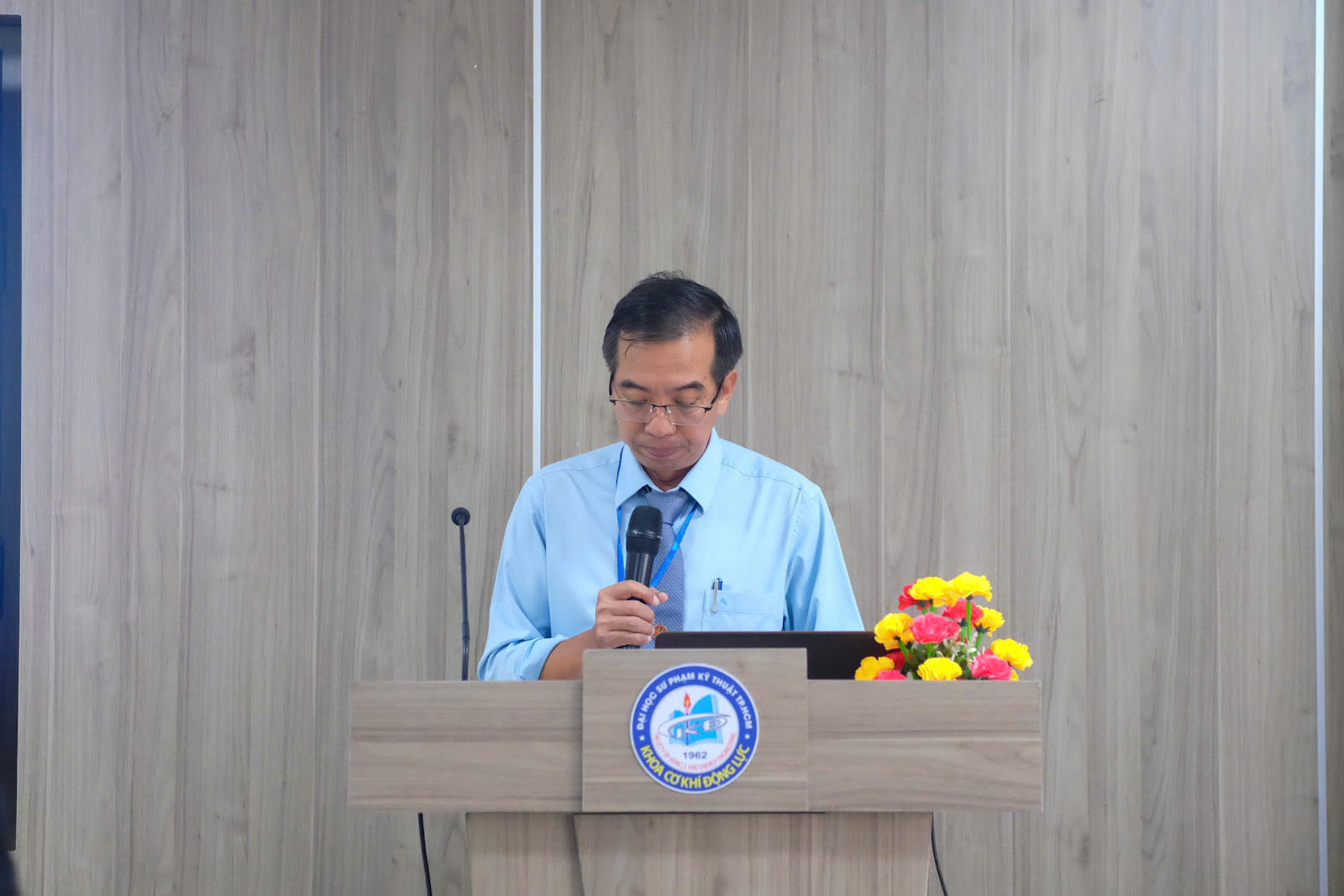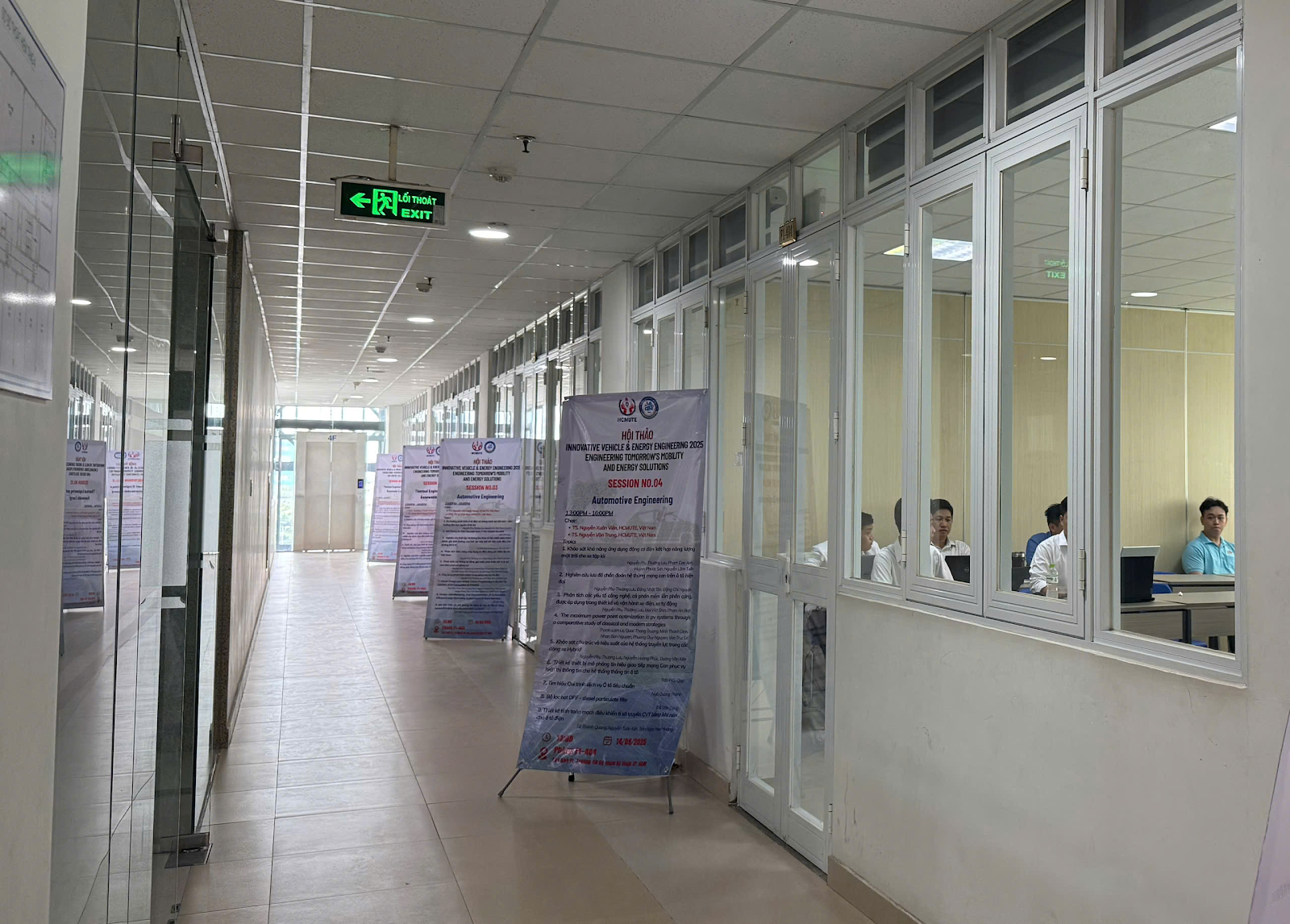On June 14, 2025, the Ho Chi Minh City University of Technology and Education (HCMUTE) hosted the scientific workshop titled “Innovative Vehicle & Energy Engineering 2025: Engineering Tomorrow’s Mobility and Energy Solutions” at meeting room F1-207, F1 building.

Organized by the Faculty of Vehicle and Energy Engineering, the workshop gathered more than 60 scientists, experts, businesses, and over 100 students from within and outside the university. It created a dynamic academic forum focusing on key contemporary topics such as smart transportation, renewable energy, thermal and refrigeration engineering, and technical solutions for sustainable development.
The event featured notable participants including Assoc. Prof. Dr. Pham Xuan Mai (Kim Long Motor Company), Assoc. Prof. Dr. Do Van Dung (Former Rector of HCMUTE), Assoc. Prof. Dr. Tran Huu Nhan – Dean of the Faculty of Transportation Engineering (Ho Chi Minh City University of Technology – VNU-HCM), along with representatives from enterprises, researchers, and lecturers from various institutions.
From HCMUTE, participants included Dr. Nguyen Van Long Giang – Dean of the Faculty of Vehicle and Energy Engineering, Dr. Huynh Phuoc Son – Head of the Office of Corporate Relations, Assoc. Prof. Dr. Hoang An Quoc, Dr. Nguyen Van Trang – Vice Dean of the Faculty, together with faculty members and students presenting their research.
In his opening remarks, Dr. Nguyen Van Long Giang emphasized:
“This university-level academic workshop is open to researchers, experts, lecturers, and students interested in Automotive Engineering, Thermal–Refrigeration Technology, and Renewable Energy. With the theme ‘Innovative Vehicle & Energy Engineering: Engineering Tomorrow’s Mobility and Energy Solutions’, the workshop not only reflects global technological trends but also demonstrates our commitment to promoting education, research, and technology transfer for sustainable development.”

Key Presentations
Assoc. Prof. Dr. Pham Xuan Mai (Kim Long Motor) and Dr. Luong Hung Truyen (Nguyen Tat Thanh University) presented “Smart Mobility and Autonomous Vehicles: Strategic Technological Foundations for Sustainable Transportation Development and Technological Sovereignty in Vietnam.” The report highlighted autonomous vehicles as a core technology integrating AI, sensors, and automated control systems to form a flexible, optimized, and eco-friendly transportation ecosystem.
Assoc. Prof. Dr. Do Van Dung (Former President of HCMUTE) presented “New Technologies in Smart Vehicles,” focusing on sensor fusion, ADAS, AI, V2X communication, 5G/6G connectivity, and challenges such as investment costs, cybersecurity, and legal infrastructure. He also discussed the roles of edge computing, AIoT, and sensor standardization in building the smart vehicle ecosystem.
Assoc. Prof. Dr. Tran Huu Nhan (Ho Chi Minh City University of Technology) delivered a presentation on “Technology Trends in Automotive Applications and the Strategic Role of Collaboration in Workforce Training,” highlighting the importance of University–Industry (U–I) and University–University (U–U) partnerships to close the gap between theory and practice, standardize training programs, and foster innovation capabilities.
Afternoon Session
The workshop continued in the afternoon with 60 scientific papers presented across 8 specialized sessions held in rooms F1-401 to F1-408, focusing on three main areas: Automotive Technology, Thermal–Refrigeration Engineering, and Renewable Energy. Participating researchers, lecturers, and students presented a wide range of topics, including:
Thermal–Refrigeration Engineering & Renewable Energy:
Microchannel heat transfer coefficient studies
Supersonic flow simulation in ejectors
Solar-powered water distillation devices
Household wind turbine modeling
Automotive Engineering:
Simulation of the Hyundai Ioniq 5
Regenerative braking system design
Aerodynamic analysis of sedan cars
Development of automatic wiper systems
Design of a pneumatic CVT control circuit
Electronics – Control – Embedded Programming Applications:
Autonomous steering simulation using Python
Pneumatic gearbox control
Driver and cabin environment recognition systems
Fault detection models using IoT, sensors, and microcontrollers
Training and Technology Transfer Solutions:
CAN network display device design
EV teaching model research
Simulation software development for student practice
Application of digital twin models in building energy management

Many outstanding projects conducted by undergraduate students, master’s students, and doctoral candidates demonstrated the active role of learners in HCMUTE’s innovation ecosystem—particularly in emerging areas like smart mobility, integrated energy management, data modeling, and intelligent operational technologies in education and industry.
The “Innovative Vehicle & Energy Engineering 2025” workshop served as a deep and specialized academic activity that strengthened the link between research, education, and technology transfer. It opened up new directions for interdisciplinary collaboration and the development of high-quality technical human resources for the 2025–2030 period.